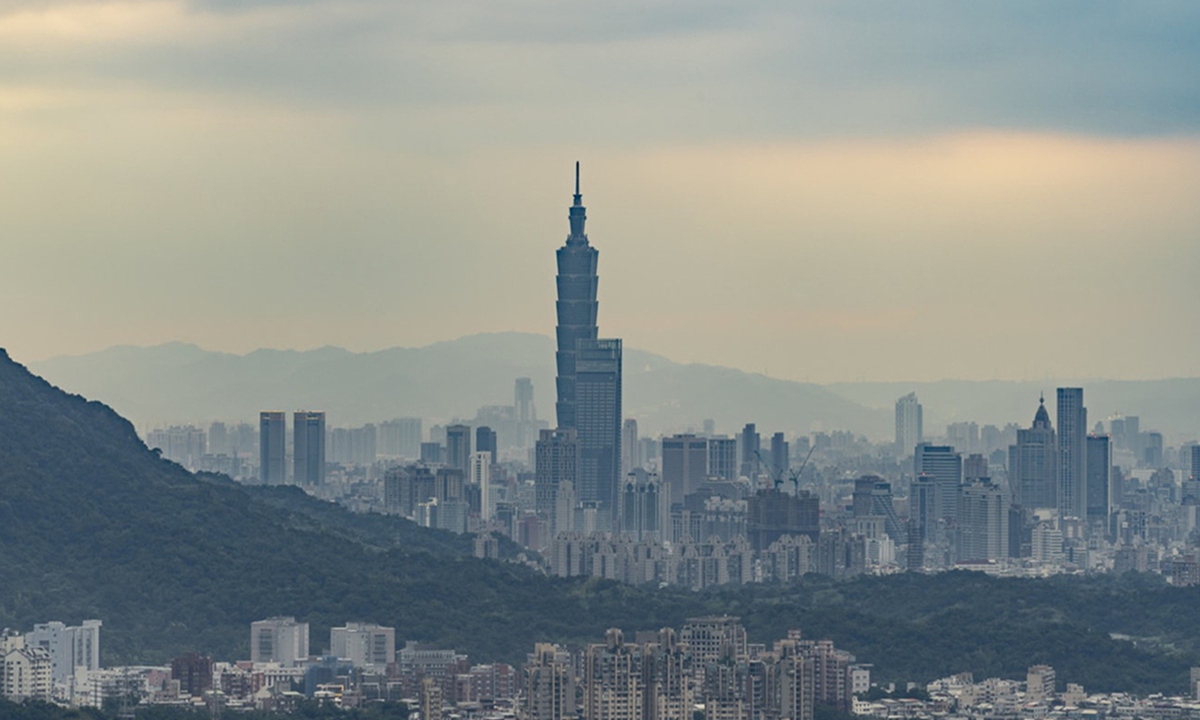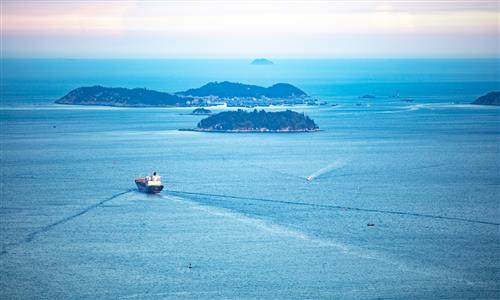Results of Taiwan regional elections spur concerns over cross-Straits business, trade

A view of the Taipei city, Taiwan island Photo: Unsplash
Following Taiwan's regional elections, concerns have risen regarding cross-Straits trade, given the island's new leaders' adoption of a hostile and separatist policy toward the Chinese mainland.
Business representatives from the Taiwan region and experts urged the new authorities of the region to abandon the previous approach of provoking "independence" and confrontation. They emphasized that this shift has steered the island away from peace and prosperity, leading it toward conflict and recession.
Taiwan's leadership and legislature elections were held on Saturday. The candidate of the Democratic Progressive Party (DPP) Lai Ching-te and his running mate Hsiao Bi-khim, won the leadership election.
Lai, notorious for his separatist stance, has made remarks to advocate the fallacy of "Taiwan independence."
Teng Tai-Hsien, secretary general of the Straits Economic & Cultural Interchange Association, told the Global Times on Monday that considering the political atmosphere, his outlook on cross-Straits economic prospects is quite pessimistic.
Taiwan has imposed long-standing trade restrictions on mainland-related products, with an expanding scope. As of November 2023, the island had banned imports of 2,509 mainland products, "a measure that may violate the spirit of the World Trade Organization," Teng said.
Lee Cheng-hung, president of the Association of Taiwan Investment Enterprises on the Mainland, told the Global Times in a previous interview that he's worried about the DPP's lack of study of trade issues with the mainland.
"If the DPP remains in power, it will undoubtedly severely impact cross-Straits economic and trade cooperation," Lee said.
On another note, experts said that the US is likely to pursue more intervention over Taiwan, such as limiting trade in advanced chips, which partially contributed to a 15.4 percent year-on-year decrease in imports from the Taiwan region to the mainland, its major trading partner, in 2023.
Teng said that Taiwan's economic growth was just above 1 percent in 2023, and cross-Straits economic ties may shrink, causing Taiwan's economy to gradually decline even further, especially given Lai's non-recognition of the "1992 Consensus" and the DPP's refusal to abandon its pro-independence stance.
The Chinese mainland is the island's largest trading partner and source of its trade surplus.
"Without the mainland, Taiwan would face a significant trade deficit, potentially leading to negative economic growth," Liu Ying, a researcher from the Institute of Taiwan Studies of Chinese Academy of Social Sciences, told the Global Times.
Western concerns about peace in the Taiwan Straits affecting chip supply highlight the vulnerability of Taiwan's semiconductor industry to geopolitical conflicts, Liu said, noting that the ongoing political tensions posed by the DPP are a growing risk to the outflow of industries in which the island has advantages.
The DPP's pursuit of "economic autonomy" and attempts to decouple the island's supply chain from the mainland has intensified over the past few years under Tsai Ing-wen.
With Lai repeatedly stating that he will follow Tsai's policy, which relies more on the US to take the opportunity to decouple and break the link with the mainland, experts believe that the trend may continue and even get worse.
"There is a risk of continuous declines in cross-Straits trade and investment and stagnant industrial cooperation, ultimately resulting in significant harm to the interests of people and businesses in Taiwan," Liu said.
Chen Binhua, a spokesperson for the State Council's Taiwan Affairs Office, said on Saturday that Taiwan is China's Taiwan, noting that the elections will not change the basic landscape or development trend of cross-Straits relations, will not alter the shared aspiration of compatriots across the Taiwan Straits to forge closer ties, and will not impede the inevitable trend of China's reunification.
Chen said the mainland will work with relevant political parties, groups and people from various sectors in Taiwan to boost cross-Straits exchanges and cooperation.


